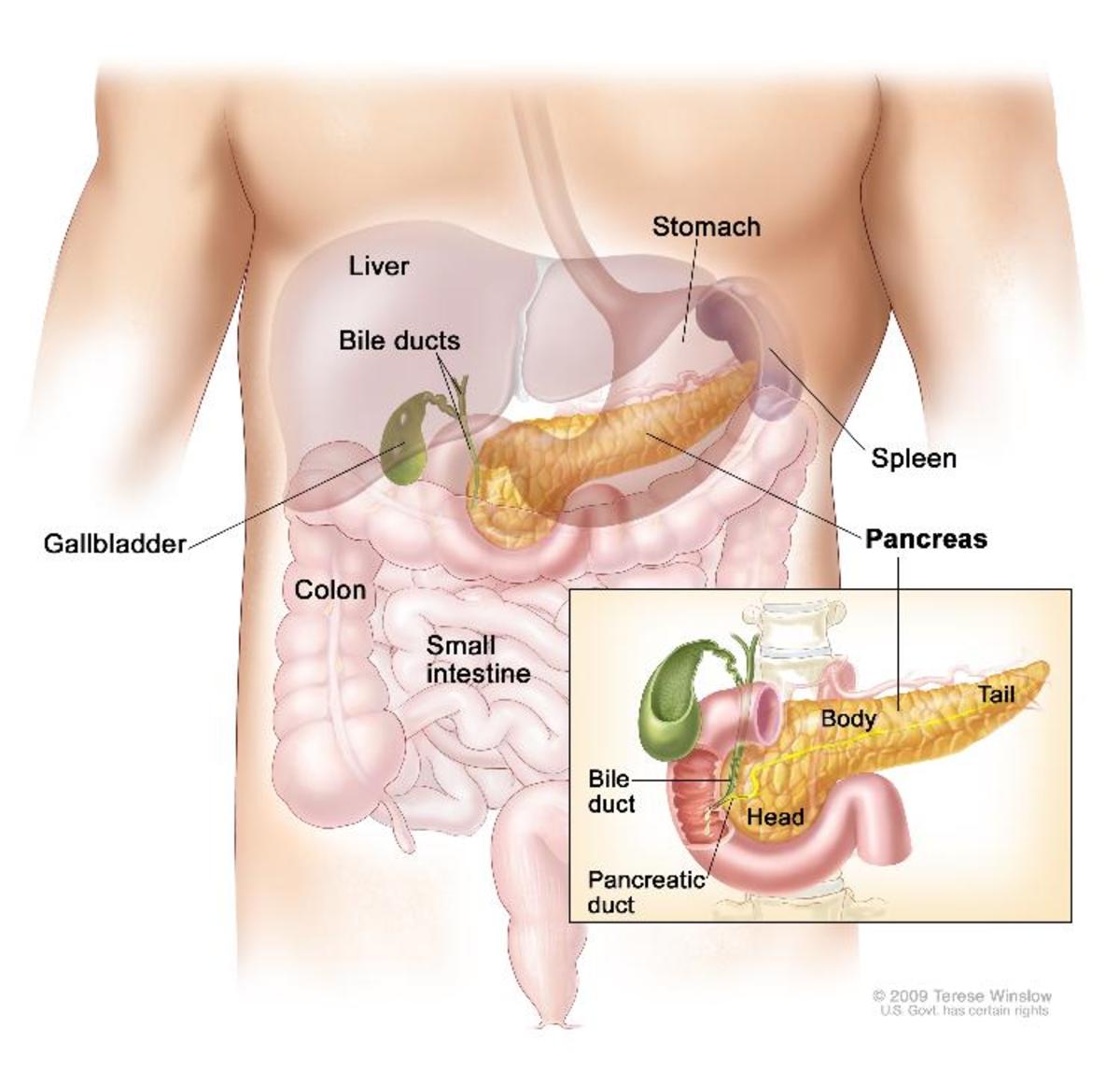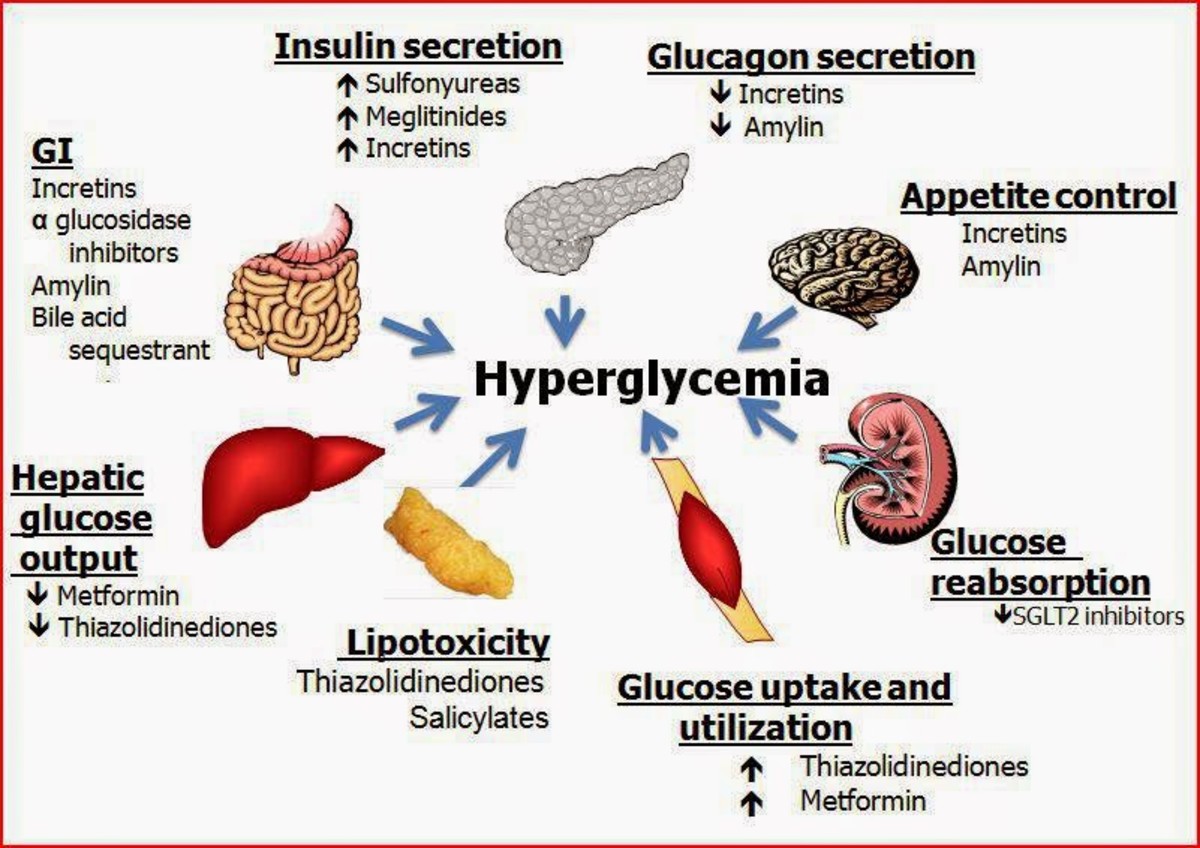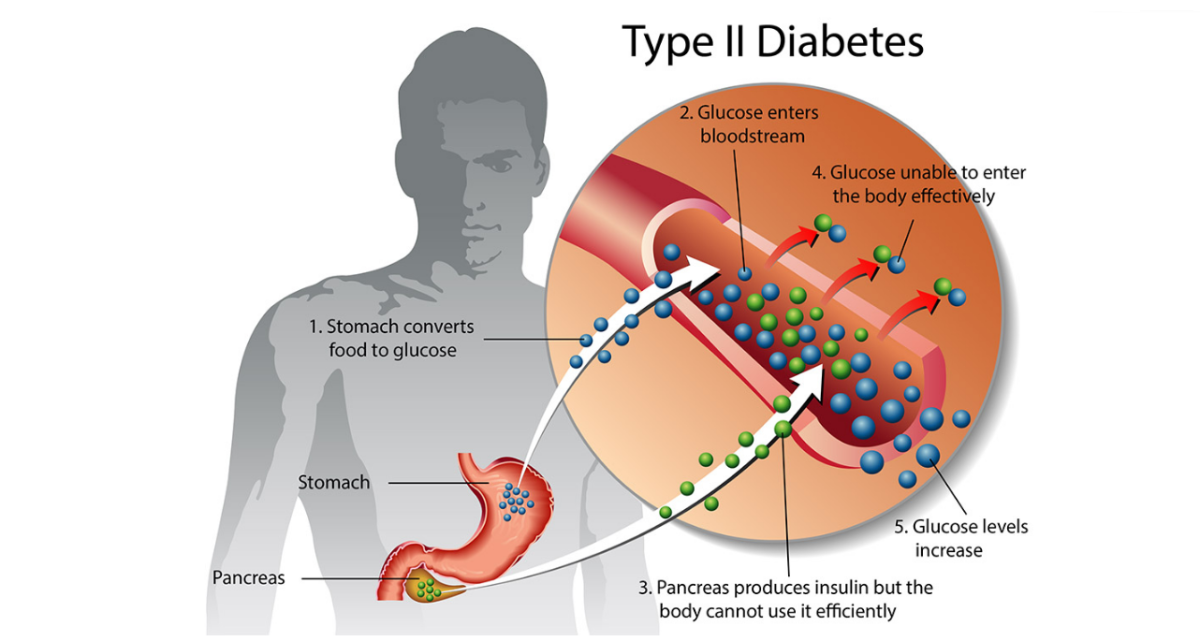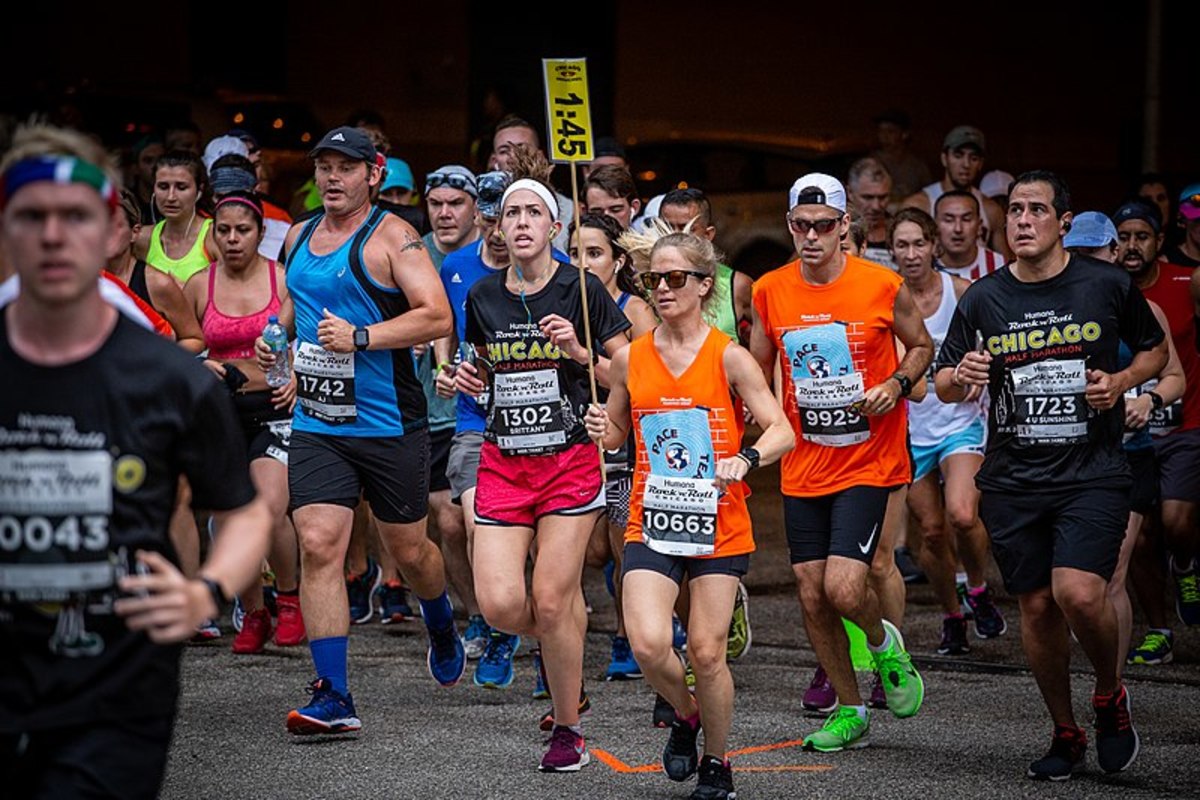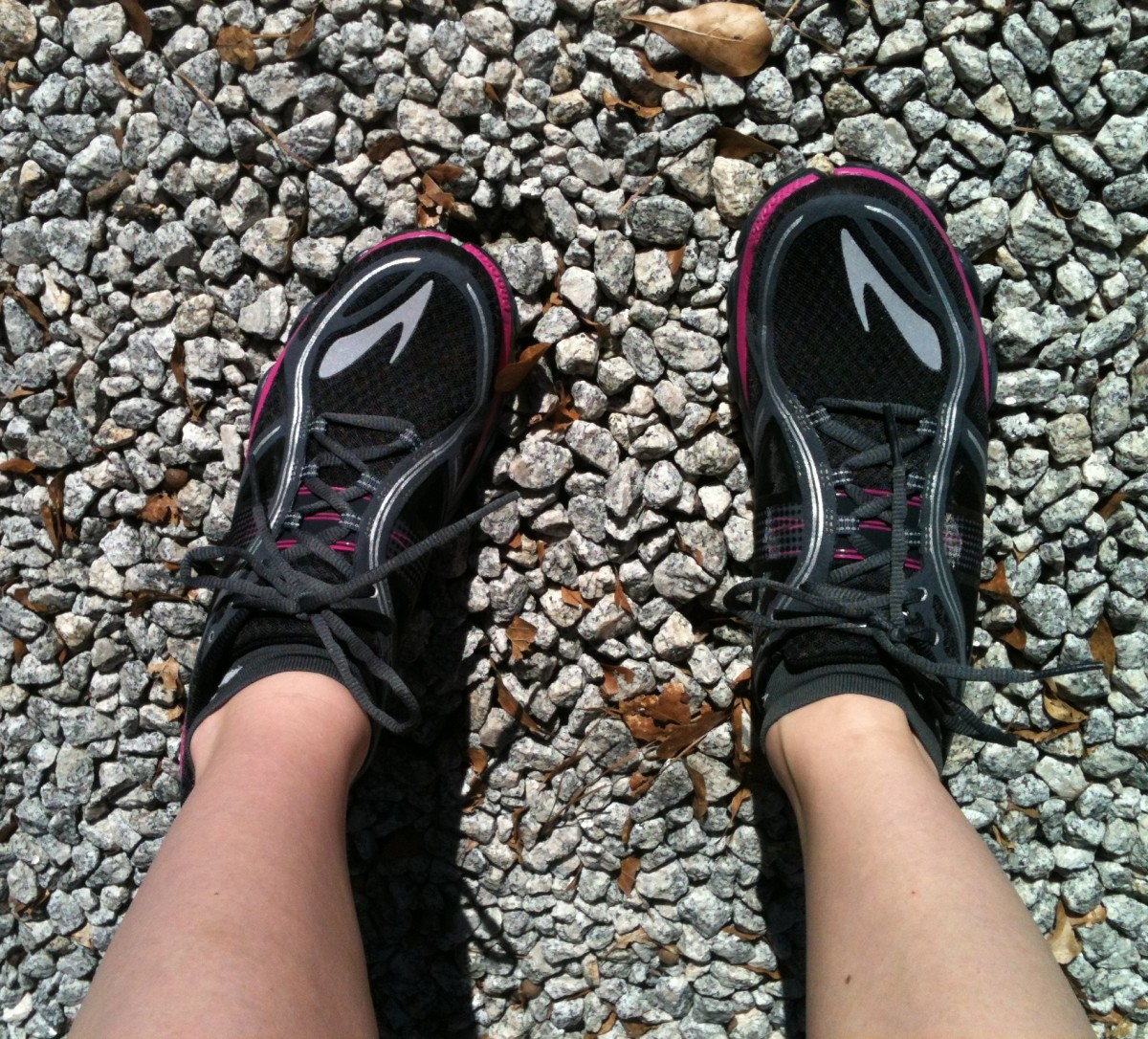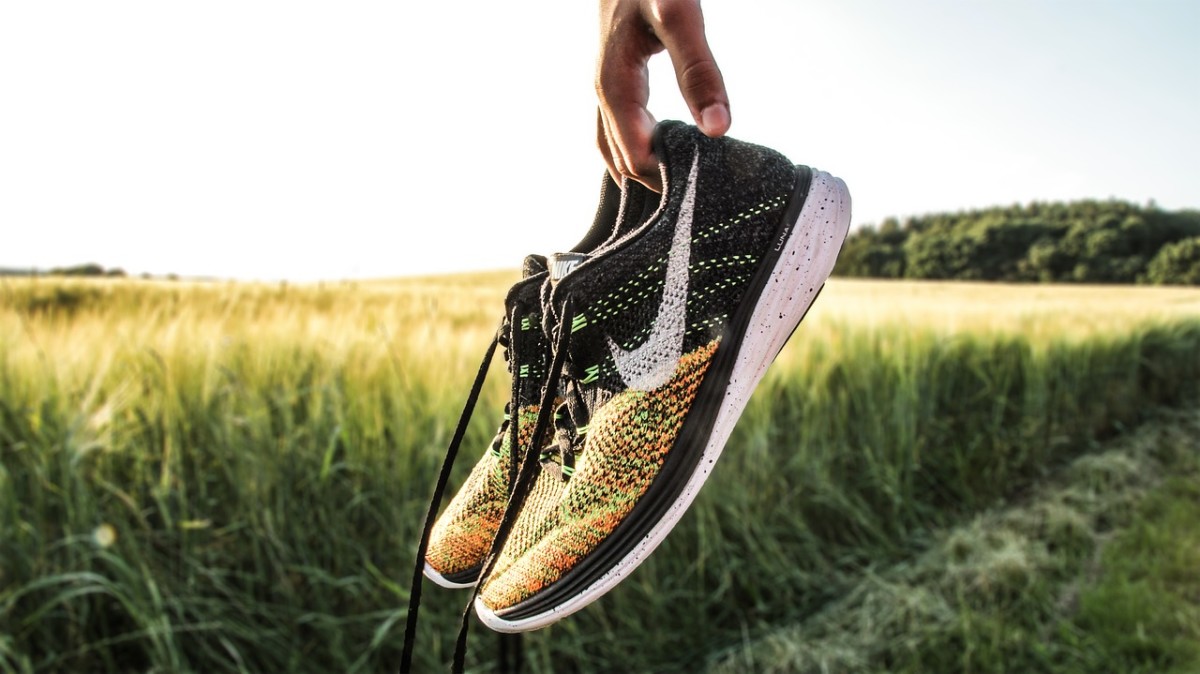Running Marathons and Other Races With Insulin-Dependent Diabetes
Athletic Training with Insulin Dependent Diabetes
If you have Type 1 diabetes (insulin dependent diabetes) or know someone who does, you can appreciate how difficult it can be to stay active and train for athletic events without suffering hypoglycemia or other complications.
I have had juvenile diabetes for nearly 10 years, yet my diagnosis at the surprising age of 34 did not stop me from my passion for running. Within five years, I started training for my first marathon and crossed the finish line of the Portland Marathon in 2008! I have since completed an additional six marathons, including the Boston Marathon in 2011, and numerous 1/2 marathons, 10K and 5K races.
This is not to say that you should immediately start a running training program if you have a medical condition such as diabetes, unless you discuss the matter in advance with your doctor.
Over many months and years of training, I have learned what works with my body running long distances. Just six months ago, I suffered repeated hypoglycemic episodes during my runs until I visited my doctor and discovered the cause - new sites for my insulin pump caused my body to react as if I had doubled my medication!
Fortunately, I figured out the issue quickly with my endocrinologist and made the necessary adjustments so I could continue training without complications.
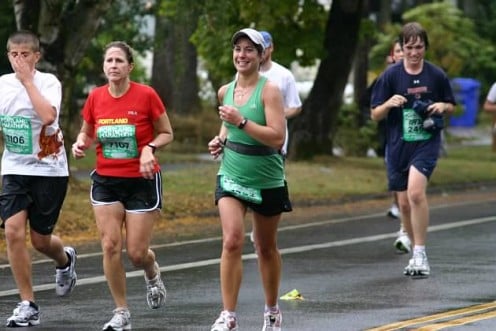
Before a Run: Don't Leave Home without These Items if you Have Diabetes
- Cell phone
- Medical ID bracelet or shoe tag
- Glucose tabs
- Specialized running gels
- Water and/or electrolyte solution
- Salt Tablets (optional)
- A running partner - highly recommended!
Diabetes Plan Before a Run or a Race
For both my weekly long training runs (8-20 miles) and before a race, I plan my diabetes care at least two days ahead of time.
Your diet should include plenty of slow-digesting, complex carbohydrates with healthy protein and limited fats. Drink lots of water and limit caffeine and alcohol. Get plenty of restful sleep and attempt to minimize stress, which can negatively impact glucose levels.
Before you head out, plan on wearing a fuel belt during any run longer than 30 minutes to carry glucose tabs and energy gels (your safest bet is to carry these items even for shorter runs). I wear clothing with pockets so I can carry my cell phone and blood sugar meter, too. Although I turn off my insulin pump, because medication is not usually needed as excess blood sugar is burned off during exercise, I wear the device so that I can give myself medication, if necessary, after testing or re-fueling.
Training runs are not as time sensitive as races, so I take plenty of time to test blood glucose frequently - about once per hour - and make adjustments as necessary. The information I learn during my training factors into my race day plan.
The night before a race, I set my alarm for at least 4 hours before I intend to rise to give me time to test blood sugar and treat hyper- or hypoglycemia. Then, the alarm is reset for at least 2 hours before the race begins. I test, then eat and plan on testing one last time about 10-15 minutes before toeing the start line of my race.
Reaching Mile 25 of my First Marathon in 2008

Training for a Marathon with Diabetes Requires Extra Planning
Although I have been a runner since the age of 18, more than 15 years had passed before I was diagnosed with diabetes. Being insulin dependent completely changed my training regimen.
I can no longer go out for a run without careful consideration of the food and drink I have consumed recently. Complex carbohydrates, carefully tailored to a dose of insulin, with enough protein to prevent a blood sugar crash and sustain the slow release of energy over an hour or more, are required.
Every diabetic will respond in their own individual manner to the types of food and amount of medication that should taken throughout training. Weight loss may occur as you prepare for an endurance race, which can require an adjustment to your medications. Of course, blood glucose levels may also vary on a daily basis based on stress, illness, sleep and even recovery from intense bouts of exercise.
More frequent testing of blood sugar is required when training for a marathon. On long training runs, I stop and test every 45 minutes to an hour, and also if I start feeling light-headed or nauseated. I carry twice as many running gels (for energy/fuel) as a non-diabetic would bring. After being caught 1-2 miles from home and experiencing extreme difficulty moving my legs effectively in the midst of a hypoglycemic episode, I learned never to go out without some fast acting form of carbohydrate with me!
You should work with an endocrinologist and nutritionist to determine the appropriate blood glucose level at which to start a workout, which should be measured no less than 2 hours after a meal. If you start out too low, you will not have any reserves for a workout and may experience hypoglycemia within 20-30 minutes. On the other hand, if you start out too high, the stress of exercise may actually push your blood sugar even higher, causing blurry vision, extreme thirst and lethargy - none of which you want to have during a race!
For example, my "sweet spot" is a blood glucose level of 140-150 mg/dl prior to exercise. If my workout will exceed one hour or is especially intense, such as hill repeats, I bring 2 gels (1 plus a spare) to take every 45 minutes. Each gel has approximately 20 grams of carbohydrate. Depending on my then-current blood glucose level, I may take about half the amount of insulin I would ordinarily inject for the same amount of carbs.
50 Marathons in 50 States with Diabetes
Better to be Overprepared when you Race with Diabetes
If you have insulin dependent diabetes, an extreme swing of blood glucose levels is not only scary and dangerous, but potentially fatal. I cannot stress enough that any healthy, active diabetic person should add marathon training to their routine, only after clearing it first with their endocrinologist.
My motto is "better safe than sorry." In other words, I make sure to be over-prepared for a long training run or a race, rather than run the risk of aid stations not being fully stocked. Before heading out, I tell my husband how far I am going, when I expect to be done and make a plan to check in with him throughout the run or race.
Remember that low blood sugar can result in confusion and impact the ability to make appropriate decisions. In fact, I have a card in my wallet that says "I am not intoxicated; I have diabetes ." If hypoglycemia sets in quickly, you could lose your way or even refuse offers of help!
Running last fall, my friend noticed that I was having difficulty carrying on the conversation and had a tough time answering her question about what my plans were for the evening. She asked if we should stop so I could test, but I told her I was fine. Another few minutes passed and she directed me to stop! I was not OK! Fortunately, we were able to get some juice at a local coffee shop while we called for someone to come pick us up.
Crossing the Finish Line of my First Marathon!
Refuel Properly After a Race or a Run
Immediately after finishing a marathon, another endurance race or a long training run, a diabetic athlete should test their blood glucose. Drink plenty of fluids afterward, stretch and plan on consuming an athletic recovery drink or balanced energy bar with a mix of carbohydrate, protein and fats.
I usually test my blood glucose more frequently for the 24 hour period after an especially long run or race. I find that levels can suddenly plummet in the afternoon or evening at times. Other days, the stress of a grueling race can result in hyperglycemia, nausea and exhaustion.
After reading this hub, you may be thinking that it takes a lot of work, effort and planning to run a marathon or other races with insulin dependent diabetes. The answer is, yes it does! Yet, I would not give up my love of running simply because I developed Type 1 diabetes. My passion for racing helps keep me healthy, happy and fit. My overall blood glucose levels, measured as A1C, are below 6.5%, toward that of a non-diabetic person.
As long as my health permits, I am going to continue running!
Do you have a Medical Condition that affects your Hobbies/Fitness?
© 2012 Stephanie Marshall

